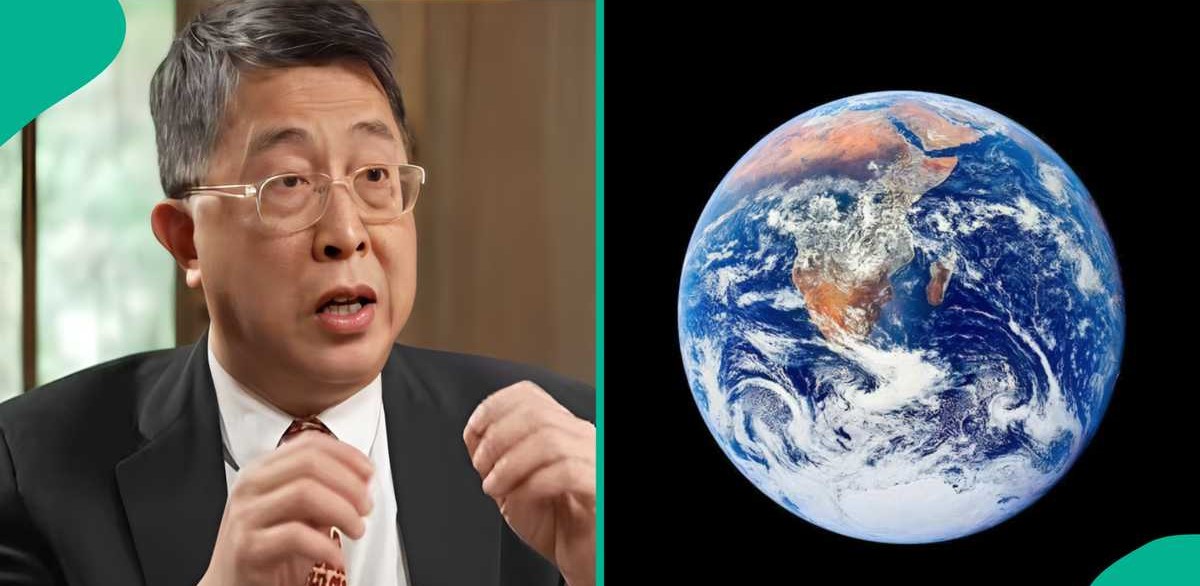Harvard Scientist Claims God Is Real: The Mathematical Formula Linking Science and Spirituality
In a world where science and religion often seem at odds, a groundbreaking claim by Harvard astrophysicist and aerospace engineer Dr. Willie Soon is creating waves. During a recent appearance on the Tucker Carlson Network, Dr. Soon presented what he believes could be the ultimate scientific evidence for the existence of God—a mathematical formula. This revelation has sparked immense curiosity and heated debates across scientific and philosophical communities, bridging the long-standing divide between faith and reason.
Dr. Soon’s theory, rooted in the “fine-tuning argument”, goes beyond traditional metaphysical discussions. It draws on decades of scientific exploration and a fascinating mathematical principle first proposed by Cambridge mathematician Paul Dirac, a Nobel laureate and pioneer in quantum mechanics. At the heart of the argument lies the assertion that the precise calibration of the universe’s physical constants defies random chance and points instead to intentional design.
Could the universe itself be mathematical proof of a higher power? Let’s dive deeper into this groundbreaking claim and its implications.
The Fine-Tuning Argument: A Symphony of Precision
At the core of Dr. Soon’s claim is the “fine-tuning argument,” a concept that has intrigued scientists, philosophers, and theologians for decades. The fine-tuning argument suggests that the physical laws of the universe are so perfectly calibrated to support life that their configuration cannot be attributed to mere chance.
Dr. Soon elaborated on this during his interview, stating, “There are so many examples of ever-present forces—be it gravity, the speed of light, or atomic stability—that allow us to illuminate our lives. These forces align so perfectly that it’s impossible to dismiss the likelihood of a divine intelligence behind them.”
For instance:
- The gravitational constant is finely balanced; if it were even slightly stronger or weaker, the universe could collapse or fail to form stars.
- The cosmological constant, which governs the expansion of the universe, is astonishingly precise, with any deviation rendering life impossible.
- The atomic structure of elements essential to life, such as carbon, relies on exact physical laws to exist.
Paul Dirac’s Mathematical Insight
Dr. Soon’s argument builds on the mathematical legacy of Paul Dirac, one of the most influential theoretical physicists of the 20th century. Known as the “father of antimatter,” Dirac discovered the existence of antimatter—a finding later confirmed in 1932. Beyond his contributions to quantum mechanics, Dirac speculated on the beauty and harmony of mathematical laws that govern the universe.
Dirac famously wrote in 1963: “One could perhaps describe the situation by saying that God is a mathematician of a very high order, and He used very advanced mathematics in constructing the universe.”
According to Dirac’s theories, the precise constants of the universe are written in a mathematical language of unparalleled complexity and elegance. The sheer perfection of these constants, Dr. Soon argues, underscores the existence of an intelligent designer. “The universe operates on laws so beautifully interconnected that it feels as though they were orchestrated by a higher intelligence,” he said.
A Debate Rekindled: Science Meets Spirituality
While many scientists shy away from linking religion with empirical science, Dr. Soon advocates for a more integrative approach. He asserts that the harmony between mathematics and the physical universe points to intentional design, rather than randomness. According to him, the mathematical principles we use to unlock the universe’s mysteries could serve as a bridge between science and faith.
“God has given us this light, to follow the light and do the best that we can,” Dr. Soon remarked during his podcast appearance. For him, mathematical equations are not just tools to describe the universe—they are reflections of a higher truth.
Criticism from the Scientific Community
While Dr. Soon’s claims have captivated the imagination of many, they have also drawn skepticism. A significant portion of the scientific community maintains that while the universe’s precision is remarkable, it does not necessarily point to divine intervention. Critics argue that:
- Multiple Universe Theories: Some suggest the existence of a multiverse, where countless universes with varying constants exist. In this scenario, our universe is simply one of many capable of sustaining life.
- Natural Laws vs. Divine Design: The fine-tuning of physical constants may be a natural outcome of as-yet-unknown scientific principles, rather than evidence of intentional creation.
- Empirical Evidence: Many argue that Dr. Soon’s theory, while intriguing, lacks the empirical testing and falsifiability required for scientific validation.
However, proponents of Dr. Soon’s viewpoint counter that dismissing the fine-tuning argument as coincidence is, in itself, a leap of faith.
The Wider Implications: A Dialogue Between Worlds
The interplay between science and spirituality has long been a contentious issue. While science relies on observation and experimentation, religion often draws on faith and personal experience. Dr. Soon’s theory invites a dialogue that respects the merits of both perspectives.
For theologians, the theory provides an opportunity to frame long-standing beliefs within a modern scientific context. For scientists, it challenges them to confront the philosophical implications of their work. And for the general public, it encourages a renewed curiosity about the mysteries of existence.
As one commentator put it, “Dr. Soon’s work does not end the debate—it ignites it. Whether you agree with his conclusions or not, his theory forces us to think deeply about our place in the cosmos.”
A Thought-Provoking Legacy
Dr. Soon’s claims may not resolve the debate about the existence of God, but they add an important voice to the conversation. By grounding his argument in mathematics and the fine-tuning of the universe, he offers a fresh perspective that transcends traditional boundaries.
While Paul Dirac may have first hinted that “God is a mathematician,” Dr. Soon’s work builds on this foundation, suggesting that the answer to one of humanity’s most profound questions might lie in equations as much as in philosophy or theology.




